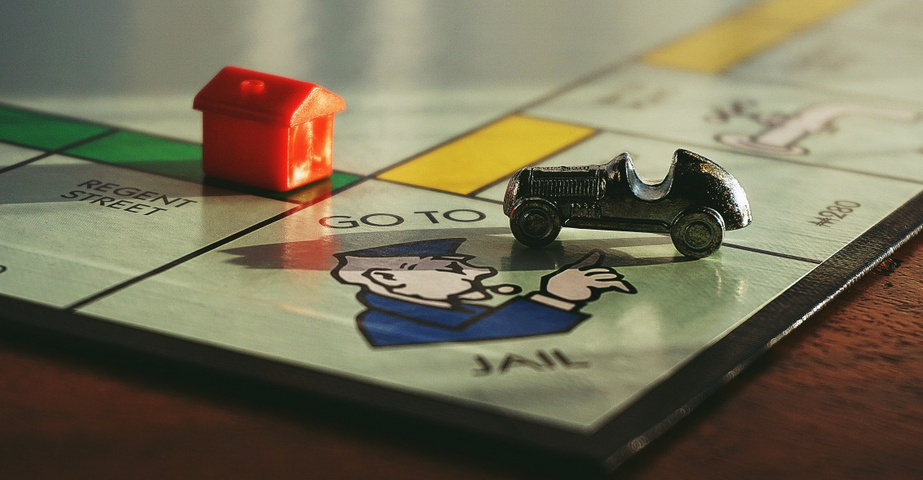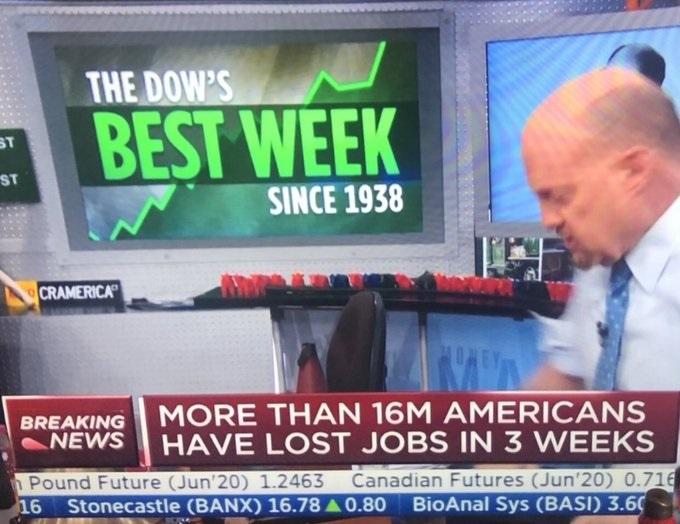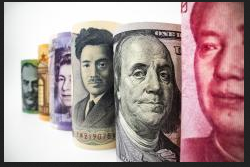According to a popular way of thinking, monopolies undermine the efficient functioning of the market economy by being able to influence the prices and the quantity of products. Consequently, this undermines the well-being of individuals in the economy. By this way of thinking, the inefficiency emerges because of the deviation from the ideal state of the market as depicted by the “perfect competition” framework. The “Perfect Competition” Framework In the world of perfect competition, a market is characterized by the following features: There are many buyers and sellers in the market. Homogeneous products are traded. Buyers and sellers are perfectly informed. There are no obstacles or barriers to entering the market. In the world of perfect competition, buyers and
Topics:
Frank Shostak considers the following as important: 6b) Mises.org, Featured, newsletter
This could be interesting, too:
RIA Team writes The Importance of Emergency Funds in Retirement Planning
Nachrichten Ticker - www.finanzen.ch writes Gesetzesvorschlag in Arizona: Wird Bitcoin bald zur Staatsreserve?
Nachrichten Ticker - www.finanzen.ch writes So bewegen sich Bitcoin & Co. heute
Nachrichten Ticker - www.finanzen.ch writes Aktueller Marktbericht zu Bitcoin & Co.
 According to a popular way of thinking, monopolies undermine the efficient functioning of the market economy by being able to influence the prices and the quantity of products. Consequently, this undermines the well-being of individuals in the economy. By this way of thinking, the inefficiency emerges because of the deviation from the ideal state of the market as depicted by the “perfect competition” framework.
According to a popular way of thinking, monopolies undermine the efficient functioning of the market economy by being able to influence the prices and the quantity of products. Consequently, this undermines the well-being of individuals in the economy. By this way of thinking, the inefficiency emerges because of the deviation from the ideal state of the market as depicted by the “perfect competition” framework.
The “Perfect Competition” Framework
In the world of perfect competition, a market is characterized by the following features:
- There are many buyers and sellers in the market.
- Homogeneous products are traded.
- Buyers and sellers are perfectly informed.
- There are no obstacles or barriers to entering the market.
In the world of perfect competition, buyers and sellers have no control over the price of the product. They are price takers.
The assumption of perfect information and thus absolute certainty implies that there is no room left for entrepreneurial activity, for in the world of certainty there are no risks and there is therefore no need for entrepreneurs.
According to the proponents of the perfect competition model, any situation in a market that deviates from this model is regarded as suboptimal to consumers’ well-being.
For instance, if a particular firm is seen as dominating the marketplace it is regarded as bad news, and it is recommended that the government intervene.
But contrary to this way of thinking, competition emerges not because of a large number of participants, but as a result of a large variety of products.
Competition in Products, Not Firms
The greater the variety of products is, the greater competition will be and the more benefits there will be for the consumer. Once an entrepreneur introduces a product—the outcome of his intellectual effort—he acquires 100 percent of the newly established market in it. However, if we apply the logic of perfect competition, this situation must not be allowed, for it will undermine consumers’ well-being.
If the perfect competition model were to be strictly adhered to, no new products would ever emerge.
When an entrepreneur successfully introduces a product and makes a profit, he attracts competition. Notice that what gives rise to competition is that consumers have endorsed the new product. The producers of older products must come up with new ideas and new products to catch consumers’ attention.
The popular view that a producer that dominates a market could exploit his position by raising the price above the truly competitive level is erroneous: the goal of every business is to make profits. This, however, cannot be achieved without offering consumers a suitable price. It is in the interest of every businessman to set a price at which the quantity that is produced can be sold at a profit.
In setting this price, the producer-entrepreneur will have to consider how much consumers are likely to spend on the product. He will have to consider the prices of various competitive products. He will also have to consider his production costs.
Any attempt on behalf of the alleged dominant producer to disregard these factors will cause him to suffer losses.
Further, how can government officials establish whether the price of a product charged by a dominant producer is above the so-called competitive price level? How can they know what the competitive price is supposed to be? (See on this Murray Rothbard in Man, Economy, and State, p. 661.)
If government officials attempted to enforce a lower price, this could wipe out the incentive to produce the product. So, rather than improving consumers’ well-being, government policies would only make things much worse. (On this, no mathematical methods, no matter how sophisticated, could tell us what the competitive price level is).
Again, contrary to the perfect competition model, what gives rise to a greater competitive environment is not a large number of participants in a particular market, but rather a large variety of competitive products. Government policies in the spirit of the perfect competition model, however, are destroying product differentiation and therefore competition.
Products Are Heterogeneous
It is not tenable for various suppliers to offer a homogeneous product. If it were, a buyer would not prefer one seller to another. The enforcement of product homogeneity in order to emulate the perfect competition model would simply lead to no competition at all.
Product differentiation is what free market competition is all about. This means that every supplier of a product has 100 percent control over it. In other words, he is a monopolist.
What gives rise to product differentiation is that every entrepreneur has different ideas and talents. This difference in ideas and talents is manifested in the way the product is made, the way it is packaged, the place it is sold, the way it is offered to the client, etc.
For instance, a hamburger that is sold in a beautiful restaurant is a different product from a hamburger sold at a takeout place. Should the owner of a restaurant be restrained if he begins to dominate hamburger sales? Should he be forced to convert his restaurant into a takeout place in order to comply with the perfect competition model? All that his sales show is that consumers have a greater preference for dining in the restaurant than buying from the takeout shop. What is wrong with this?
Let us now assume that consumers have completely abandoned takeout and purchase hamburgers only from restaurants, does this mean that the government must step in and intervene?
The issue of a harmful monopoly has no relevancy in the free market environment. A harmful monopolist is likely to emerge when the government, by means of licenses and other regulations, restricts the variety of products in a particular market by limiting the number of firms in it.
By imposing restrictions on the number of firms, and thus limiting the variety of goods and services offered to consumers, government curtails consumers’ choices and lowers their well-being.
Summary and Conclusion
The whole idea of government regulating so-called monopolies in order to promote competition and defend people’s well-being is a fallacy. If anything, such intervention only stifles market competition and lowers living standards. Furthermore, what matters for individuals’ well-being is not the number of firms, but the variety of goods and services. Harmful monopolies cannot emerge without government mechanisms such as mandatory licensing requirements. Hence, the free market is not conducive for the emergence of harmful monopolies.
Tags: Featured,newsletter








